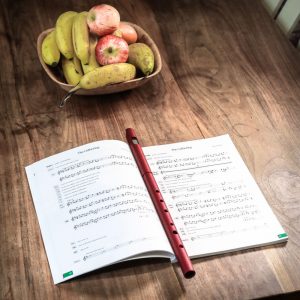The Harmonious Path to Wellness: How Playing Music Benefits Our Health
Music has been an integral part of human culture for millennia, captivating hearts and minds with its enchanting melodies and rhythms. Beyond its aesthetic appeal, music has a profound impact on our well-being, fostering both mental and physical health. Whether we are strumming a guitar, tinkling the ivories, or blowing through a low whistle, engaging in musical activities can have a multitude of positive effects on our overall health.
 The Therapeutic Power of Music
The Therapeutic Power of Music
1. Stress Relief and Mood Enhancement
Playing music acts as a therapeutic outlet for stress and anxiety. Research has shown that engaging with musical instruments triggers the release of endorphins, often referred to as the “feel-good hormones,” which can alleviate stress and elevate mood. The act of creating melodies and harmonies can redirect the mind’s focus, offering a respite from the demands of daily life.
2. Cognitive Enhancement
Music is an intellectual workout for the brain. When we play an instrument, we engage various regions of the brain simultaneously. This activity stimulates neural connections and enhances cognitive functions such as memory, problem-solving, and creativity. Moreover, the intricate nature of playing an instrument sharpens our multitasking abilities, boosting overall brain health.
3. Emotional Expression
Playing music provides a unique platform for emotional expression. It allows us to convey feelings and thoughts that might be challenging to express through words alone. By channeling emotions into the music we create, we can achieve a profound sense of catharsis and emotional release.

Cultivating a Sense of Belonging through Traditional or Ethnic Instruments
4. Fostering Cultural Connection
Traditional and ethnic instruments hold the key to our cultural heritage. Learning to play an instrument that has been passed down through generations connects us to our roots, instilling a sense of pride and identity. It deepens our understanding of cultural nuances and traditions, fostering a bridge between generations.
5. Creating a Sense of Belonging
Playing a traditional or ethnic instrument can create a sense of belonging within a community. Participating in cultural music groups or ensembles provides an opportunity to connect with like-minded individuals who share a passion for preserving and celebrating their heritage. This communal experience builds strong social bonds and enriches our support networks.
6. Preserving Intangible Heritage
Traditional instruments are not just vessels of sound; they are vessels of history. By mastering these instruments, we become custodians of intangible heritage, keeping alive the stories, rituals, and values of our ancestors. This act of preservation contributes to a richer understanding of our cultural lineage.
Music, a universal language that transcends boundaries, offers a myriad of health benefits. Engaging in musical activities, whether through playing instruments or listening, has the power to heal and invigorate our minds and bodies. In a world where the pace of life can often be overwhelming, music provides a sanctuary of serenity and self-expression.
Moreover, the profound impact of playing traditional or ethnic instruments extends beyond personal well-being. It nurtures a sense of belonging, allowing us to embrace our cultural heritage, connect with our roots, and strengthen the bonds within our communities. As we strum, pluck, or blow or drum to the rhythms of our ancestral music, we not only enrich our own lives but contribute to the preservation of a collective human legacy. So, whether it’s a guitar, a sitar, djembe, or a low whistle, let the harmonious melodies guide us on a journey towards holistic health and a deeper sense of belonging.
